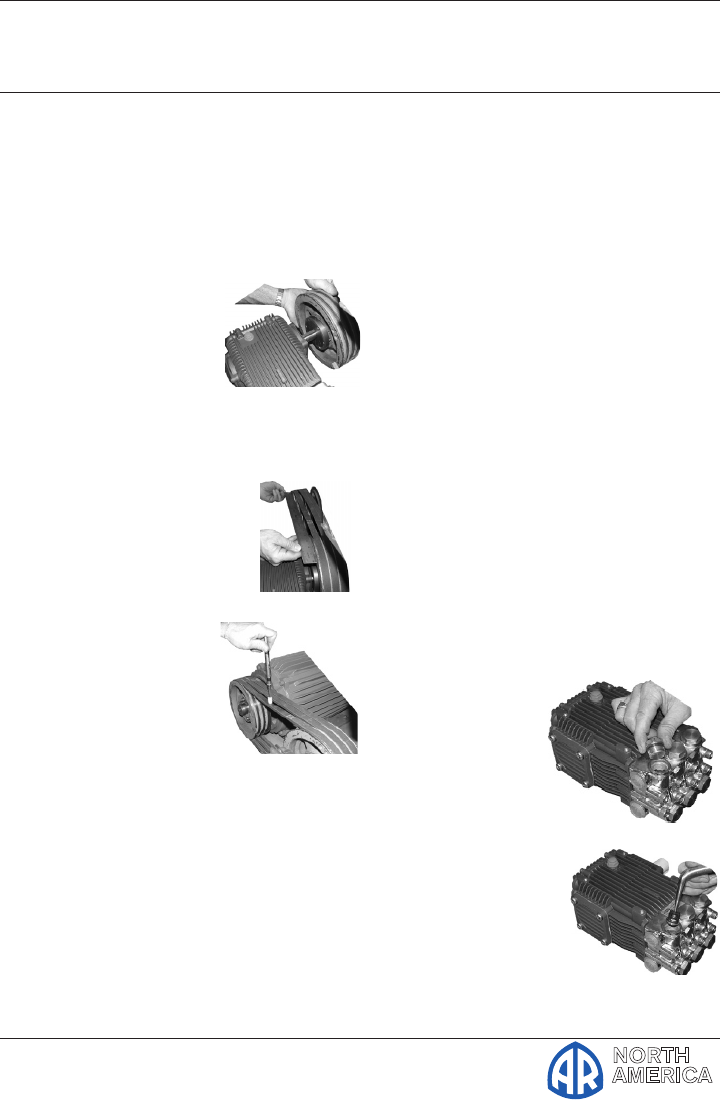
Plunger Pumps
Operating Instructions and Parts Manual RK Series Pumps
First Choice When Quality Matters
NORTH
AMERICA
Figure 7
Figure 11
Figure 10
Installation (continued)
9. Open the spray gun to purge the
system of any air.
10. Start the engine.
11. Adjust the engine speed and
unloader valve.
Belt Drive Systems
1. Mount the pump
securely to the base
plate. (See Figure 7)
For new installation
a mounting rail kit
is required, refer to parts
breakdown.
2. Install the pump pulley on the
crankshaft. It should be
as far onto the shaft as
possible.
3. Align the pulleys so they
are in line. (See Figure
8)
4. Use a belt tension
gauge to assure
proper tension
(too much tension
can cause bearing
failure or damage
the belts as well as
cause other problems).
(See Figure 9)
5. Installation complete.
Winter or Long Time Storage
1. Drain all of the water out of the
pump.
2. Run a 50% solution of a RV or
non-toxic/biodegradable antifreeze
through the pump.
3. Flush the pump with fresh water
before the next use.
4. In freezing conditions failure to
do this may cause internal pump
damage.
5. For long periods of storage in
non-freezing areas the solution
will keep the seals and O-rings
lubricated.
Service Pumps
Servicing the Valves
The inlet and discharge valves in this
series pumps are all the same. The
valves are located under the six 24mm
hex plugs. The inlet valves are located
on the lower row and the discharge
valves are located on the top row of the
pump head.
Tools required: 24mm socket, ratchet,
needle nose pliers, mechanics pick and
torque wrench.
Valve Removal:
1. Remove the valve cap.
2. Inspect the
valve cap O-
ring for any
damage, replace
if necessary. (See
Figure 10)
3. Use the needle nose
pliers to remove the
valve. (See Figure
11)
Figure 8
Figure 9


















